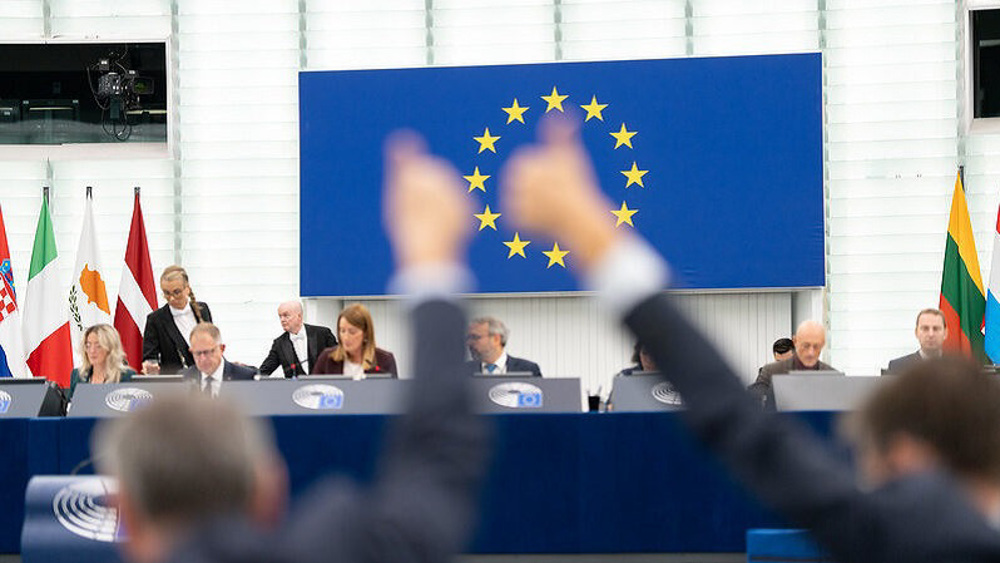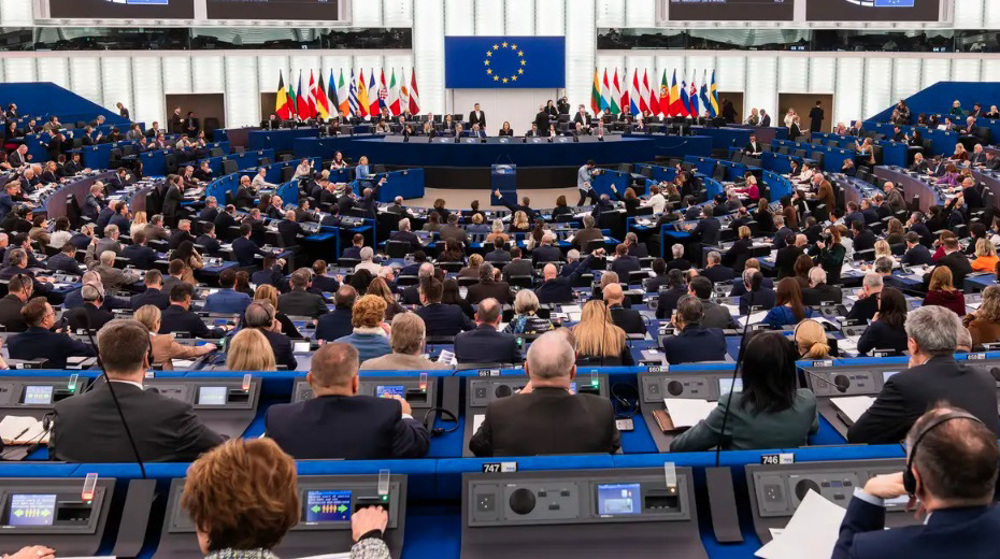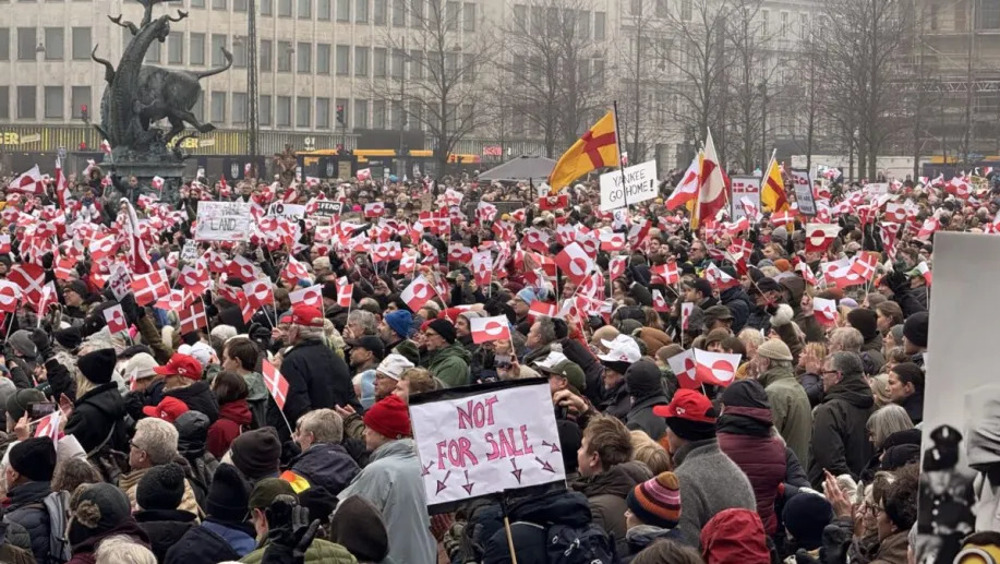Spain parliament approves controversial security laws
The Spanish lower house of parliament has approved new controversial security laws which are likely to restrict the right to protest and freedom of the press.
The country’s ruling conservative Popular Party got the bills, which will come into force on July 1, 2015, passed with absolute majority in the assembly on Thursday.
One law will change Spain’s criminal code by reviving the possibility of life imprisonment for heinous crimes, such as acts of terrorism, and murder of a child or handicapped person.
According to the second law, dubbed the Citizens’ Security Law by the government, up to 600,000 euros (USD 655,000) in cash fine may be handed down to those charged with public order offenses, even without standing a trial.
The security laws were approved two weeks after the Spanish senate voted to push forward with the changes which include hefty fines for people taking part in violent anti-austerity protests across the country.
The administration of Prime Minister Mariano Rajoy has been supporting the two bills, arguing that they will improve public security. However, the opposition parties say the bills restrict free expression and undermine democracy.

Critics have labeled the new measure as the "Gagging Law" since it imposes heavy fines on people participating in peaceful protests. Many see the new legislation as government's tougher crackdown on freedom of assembly and expression.
“The entire spirit of the law is repressive. This is a vision of the critical citizen as a dangerous citizen, who causes trouble,” Ignacio Sanchez Amor, a lawmaker with the main opposition Socialist Party, was quoted by AFP as saying.
The United Nations and international human rights organizations, including Greenpeace and Amnesty International, have criticized the laws because of the excess of power they grant to the police.

“Today is a dark day for Spain with these reforms,” Amnesty International said in a statement, calling the laws a “two-pronged assault that targets rights and freedoms of Spanish citizens, migrants and refugees.”
According to Human Right Watch (HRW), the reforms “unjustifiably curtail basic human rights protections.”
Massive anti-government street rallies in Spain have been rising recently, since the government has failed to meet people’s financial demands and seriously lowered the standards of living in the country.
MIS/KA
VIDEO | Press TV's news headlines
VIDEO | The reckless US
Qalibaf: Recent unrest a 'complementary link' in 12-day war against Iran
Ex-Israeli war minister: Iranian missiles inflicted heavy losses
Trump launches 'Board of Peace' seen as bid to control Gaza
Senior general vows swift response to any aggression on Iran
US federal immigration agents detain 5-year-old boy in Minnesota
Trump used presidency to pocket $1.4 billion in first year back in office: Report










 This makes it easy to access the Press TV website
This makes it easy to access the Press TV website